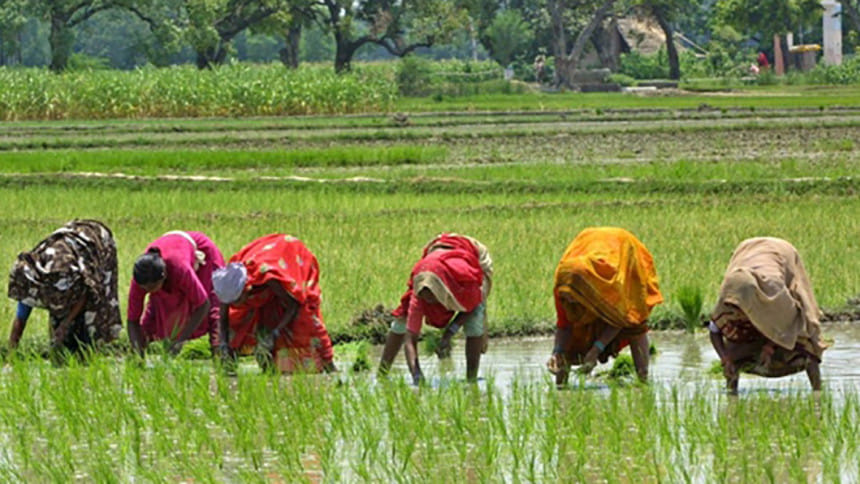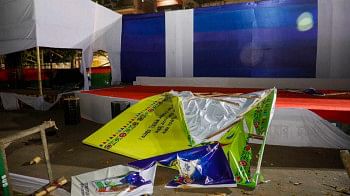Women still lag behind in decision-making: MJF

Majority of rural women feel that although they can participate in more economic activities than before, they have very little decision-making power regarding their income, said a report commissioned by Manusher Jonno Foundation.
It said women reported that they do not earn as they work as "family labour" in food production activities.
The most concerning part is that only 15 percent of women are involved in wage and salary employment in the agricultural sector, it added.
Findings of the report "Recognition of Women's Role in Agriculture" were disclosed during a policy dialogue and dissemination programme held virtually yesterday.
The research is in line with MJF's campaign "Equality through Dignity."
A team of researchers from Bangladesh Agricultural University (BAU) led by Prof Ismat Ara Begum conducted the research.
The team used "Bangladesh Integrated Household Survey" (BIHS) 2015 and labour force surveys of different years as data sets.
Besides, they held five focus group discussions in three upazilas (Sadar, Trishal, Phulpur) of Mymensingh, along with 10 key informant interviews.
According to the report, of the country's about 5.67 crore workforce, some 47.6 percent are involved in agricultural activities.
Of those involved in agricultural activities, about 64.8 percent are women.
However, in most cases, women are not the land owners. As a result, instead of taking on a care-giving role, women have been seen working in lands, said the report.
The report recommended that adequate attention should be given for human resource development of women in rural areas of Bangladesh.
Besides, opportunities for completing higher education should be followed by provision of employment for rural women.
It suggested that establishment of agro-processing plants, commercial dairy, and poultry farms in rural areas can provide greater employment opportunities.
Addressing the policy dialogue, speakers said women's unpaid labour such as household activities, care giving, and raising children, must be recognised institutionally to achieve different development goals.
They said formal recognition of unpaid labour will elevate women's socioeconomic status, uphold their dignity, and reduce gender-based violence.
Presenting the findings, Prof Ismat Ara Begum said change in globally-recognised System of National Accounts (SNA) is required to include women's household and care-giving activities in gross domestic product (GDP) calculation.
As the United Nations can make such decisions, if policymakers in Bangladesh take steps then women's unpaid labour could be recognised some day, she said.
She said, although women's unpaid labour in agricultural sector is counted in GDP, a woman's 12-hour work is considered equal to a man's 8-hour work, and that is inequitable.
The SNA method does not recognise work that does not go to the market, she added.
BAU Vice Chancellor Prof Lutful Hassan said recognising women's contribution and upholding their dignity will make it easier to achieve the Sustainable Development Goals. He urged everyone to work collectively to uphold women's dignity.
MJF Executive Director Shaheen Anam said although women's paid labour is recognised to some extent, their contributions like care-giving and other household activities are not recognised or evaluated.
Pointing out that women constitute half of the country's population, noted parliamentarian and ruling Awami League lawmaker Saber Hossain Chowdhury said a nation cannot make progress after leaving half of its population behind.
Women have to be treated with dignity if the country as a whole wants to march forward, he said.
Prof Sayema Haque Bidisha of Dhaka University's Economics department, said target 5.4 of the SDGs clearly lays importance on unrecognised contribution of women.
"As we are walking on the track to achieve the SDGs, this should be one of our agendas," she added.
Director General of Department of Agricultural Marketing, Mohammad Yousuf, and Associate Professor of Economics at Jahangirnagar University, Sharmind Neelormi spoke at the programme among others.

 For all latest news, follow The Daily Star's Google News channel.
For all latest news, follow The Daily Star's Google News channel. 



Comments